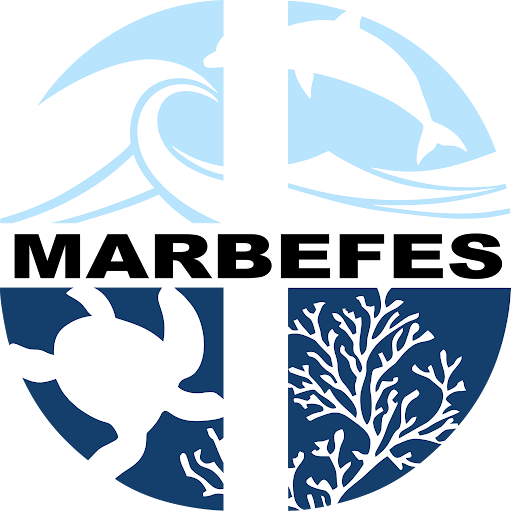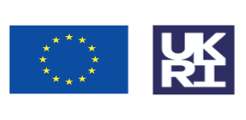Stakeholder engagement workshop was held together with researchers of the Horizon Europe projects Marine SABRES and MARBEFES
A two-day Stakeholder engagement workshop was held together with researchers of the Horizon Europe projects Marine SABRES and MARBEFES, on 19-20 March 2024 in Zandvoort, the Netherlands. The objective of the workshop was:
- to share an overview of results gathered from stakeholder interviews and surveys held in 2023,
- to obtain stakeholder’s feedback and appraisal on the initial outcomes obtained in the various Work Packages (WPs) in the projects,
- to engage stakeholders and researchers in the further development and co-creation of instruments and tools within the projects for decision-making and management of marine and coastal areas.
Of the 231 stakeholders that were interviewed in 2023, a representative group of 13 overarching stakeholders was requested to come together with 19 researchers for more focused and dedicated discussions in the Zandvoort workshop. The workshop served as an essential platform for engaging with stakeholders, policy, and researchers to ensure inclusivity and diversity of perspectives and to consolidate perceptions on the key elements in the social-ecological systems of coastal areas. By embedding and inventorying the stakeholders’ viewpoints, the projects aim to co-produce bottom-up stakeholder-supported tools and instruments that facilitate effective planning and decision-making processes, and to contribute to a greater overall societal and public understanding of the balance between the functioning of ecosystems.
FULL VERSION OF THE REPORT
Executive Summary
A two-days workshop with stakeholders and researchers of the Horizon Europe projects Marine SABRES and MARBEFES was held March 2024 in Zandvoort, the Netherlands, to share outcomes obtained in the first stage of the projects, to give feedback, and to co-design the further development of stakeholder-supported instruments and tools for decision-making and management of marine and coastal areas. The ultimate goal is to optimize the use and management of marine coastal areas while safeguarding the health of marine ecosystems and biodiversity.
The results of the Stakeholder Interviews and Surveys held during 2023 with more than 230 stakeholders along 15 European coastal research areas showed that Nature, Biodiversity, Economy, Pollution and Large-scale Tourism are perceived by stakeholders as most important elements in their social-economic and ecological environment. Further, for most elements a north-south gradient was found. In South and North Europe socio-cultural and small scale local issues, as local fisheries, are perceived more important, whereas in Central Europe large scale issues, as harbours, spatial planning and renewables, are more important. At the workshop it was suggested to analyse still the effect of a possible different mindset between islanders and those from mainland areas.
In the Governance: Rules and Regulations session stakeholders gave their insights on rules and regulations and on decision-making. In Arctic regions stakeholders experience power imbalances in decision-making processes, feeling themselves marginalized by top-down approaches. In Central Europe they experience that industry and fisheries exert significant influence in practice, yet themselves they are concerned about the slow progress, lack of transparency, and minimal impact in policy-making processes. In South Europe stakeholders advocate for regionalized policy-making approaches, higher levels of collaboration, and better coordination to address systemic barriers. Effective coastal management is challenged by lack of resources, enforcement issues, and fragmented governance structures. Therefore, governance processes need to be simplified and transparent, communication enhanced, and regulations aligned, to improve stakeholder engagement and policy effectiveness and to ensure sustainable and inclusive coastal developments in each region.
The session on Ecosystem Services highlighted concerns in interpreting this conceptual approach, leading to difficulties of integrating such a theoretical framework in practice. Knowledge of these concerns will now allow for proactive steps in both projects to mitigate these challenges to develop usable tools for policy and management. Nevertheless, in the session on ecological, economic, and socio-cultural Valuation of Ecosystem Services the stakeholders agreed on its usefulness in decision-making for specific environmental challenges. Especially it can help in identifying collaboration opportunities across diverse groups, conflicts or injustices between local coastal communities and development projects, preserving cherished knowledge, cultures, and places, and fostering inclusivity and trust amongst a range of groups and stakeholders in an area.
After introducing Trends in Geophysical and Ecological Data over research areas the stakeholders indicated the most endangered marine species and organism groups in their regions (mammals, fish, birds, kelp), and the most prominent environmental issues they face in their regions (invasive species, overexploitation, eutrophication, tourism, plastic). Overall, stakeholders expressed concerns about the degradation of natural habitats, biodiversity loss, and the need for sustainable management practices to address these complex environmental problems.
A discussion on potential future climatic and socio-economic Scenarios showed strong differences between stakeholders in perception and understanding of future developments and relevance of changes in the Political, Economic, Social, Technological, Legal and Environmental (PESTLE) aspects in their coastal zone. Refinement of the scenario analyses by grounding with project-outcomes and real-world experiences, together with perceptions of those directly impacted at their home-location, will have to be developed in the next steps of the projects.
In the session on Impact Assessments: Opportunities and Costs the stakeholders were introduced to ways of evaluating the effectiveness of policies and management solutions in marine and coastal areas. Stakeholders ranked Marine Protected Areas and Community Engagement highest as strategies in achieving environmental goals in their coastal areas, having greater benefits than costs, promoting equity and fairness; and scoring above average for policy implementability and financial feasibility. Education and Awareness was viewed to be appropriate to generate equity while being financially feasible and implementable, emphasizing the importance of stakeholder education and engagement in managing coastal and marine areas.
In the Decision Support Tools (DST) session. though recognising the challenges in acquiring high-quality data, the stakeholders emphasized the value of using both historical and real-time data to verify predictions on patterns and trends before their use in decision-making processes. For the stakeholders the top-5 reasons to use a DST are to inform them on ‘what-if’ scenarios, status and challenges of changes, and for communication, visualisation of data, and risk management. To this end, a DST should include maps (of currents, hotspots, fishing grounds), be data driven, and easy to use. The stakeholders highlighted the importance of sustained organizational support to ensure the availability and longevity of such a DST tool as an open resource that remains available for use even after the lifespan of a project.
Asking the stakeholders what Policy Briefs would be useful and helpful to decision-makers in their areas, they suggested topics as 1) the efficacy of protection measures, 2) biodiversity, 3) interdepartmental co-operation protocols, 4) marine system resilience, and 5) recognition of importance of stakeholder inclusion and policy regarding environmental constraints. In general, the stakeholders felt that Policy Briefs are a useful and important output, yet should be short and specific, include eye-catching visual elements, catch phrases and infographics, and be produced in different languages where appropriate.
The first Overarching Stakeholder Workshop was successful, productive, and generated confidence among stakeholders and researchers, laying the foundations for future cooperation by active multi-stakeholder involvement from the beginning which was deemed essential for feedback and evaluation on the relevance of research and outputs generated by both projects and which will allow for the project outcomes to become useful and usable for the practitioners in the research areas.
Next actions in the coming years will include another two series of stakeholder consultations in all research areas and two dedicated workshops evaluating all inputs and outcomes of both projects.

